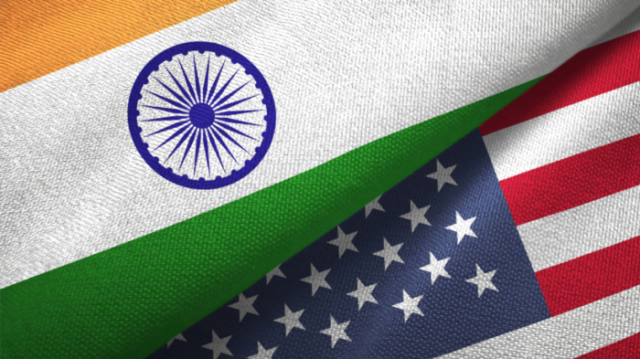India-U.S. bilateral relations have developed into a global strategic partnership that is based on shared democratic values and increasing convergence of interests on bilateral, regional and global issues. Regular exchange of high-level political visits has provided sustained momentum to bilateral cooperation, while the wide-ranging and ever-expanding dialogue architecture has established a long-term framework for India-U.S. engagement. The India-U.S. bilateral cooperation covers every field of trade and investment, defence and security, education, science and technology, cyber security, high-technology, civil nuclear energy, space technology and applications, clean energy, environment, agriculture and health. Vibrant people-to-people interaction and support across the political spectrum in both countries nurture the bilateral relationship.
Over the years major meetings have taken place between the two countries to enhance the cooperation and coordination between the two countries. The second round 2+2 ministerial dialogue was held in the United States on 19th December 2019. During the meeting, both countries decided to co-develop several projects and finalised the guidelines for projects under DTTI and the industry-to-industry framework. They also signed the Industry Security Annex (INA) which initiates the exchange of sensitive military information between the two countries. The third round took place in October 2020 in New Delhi, India. The Basic Exchange and Cooperation Agreement (BECA) were signed. Also, cooperation and learning were discussed in the maritime domain. There were speculations when Joe Biden was elected as the next President. But soon these were removed when the engagement between the leaders of the two countries became strong. The leaders met virtually when the Quad meeting took place on 12th March 2021. During the meeting, stress was put on the free and open Indo-Pacific region. United States President called upon the increasing aggressiveness by China over the region. It also reflects U.S.A’s continued commitment under Biden’s Presidency to India and the challenge that it faced from China.
Further, cooperation in the field of defence is being strengthened over time. The U.S. State Department in May this year approved the sale of P-81 patrol aircraft and related equipment. In November 2019, the Defence Acquisition Council of the Ministry of Defence had approved the procurement of the long-range maritime surveillance aircraft manufactured by Boing. Earlier this month the US Navy handed over the first two MH-60R Multi-Role Helicopters to the Indian Navy to face security threats and strengthen homeland security.The visit of Prime Minister Narendra Modi to the States and meeting with President Joe Biden and Vice-President Kamla Harris will help intensify and enhance Comprehensive Strategic Global Partnership between the two countries. This was the first in-person meeting between the two leaders. During the meeting on Friday at the White House, President Biden stated “I think that the relationship between India and the United States, the largest democracies in the world, is destined to be stronger, closer and tighter, and I believe it can benefit the whole world.” During meeting while President Biden stressed on Covid, climate change and Quad as three topics of discussion, Prime Minister Modi spoke about tradition, talent, technology, trade and trusteeship (five Ts).









